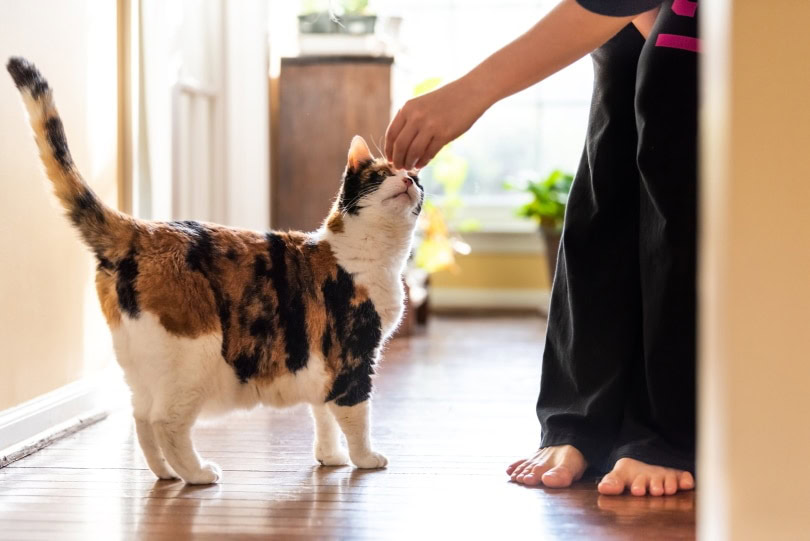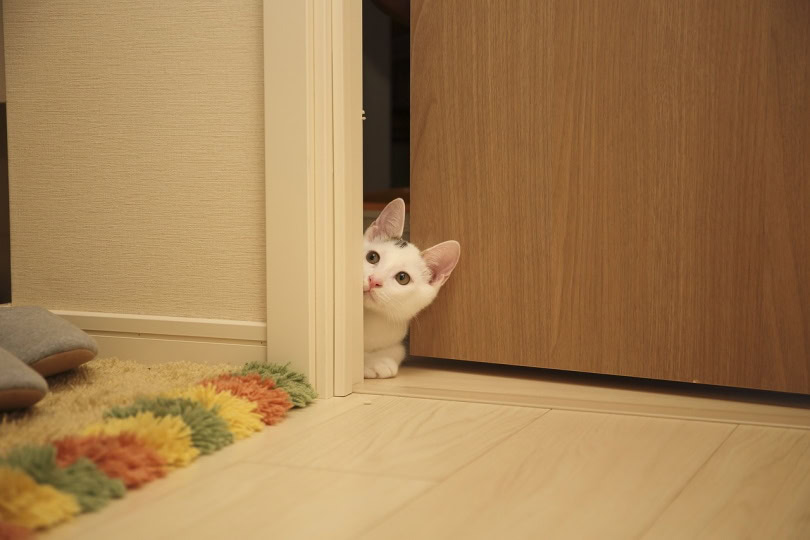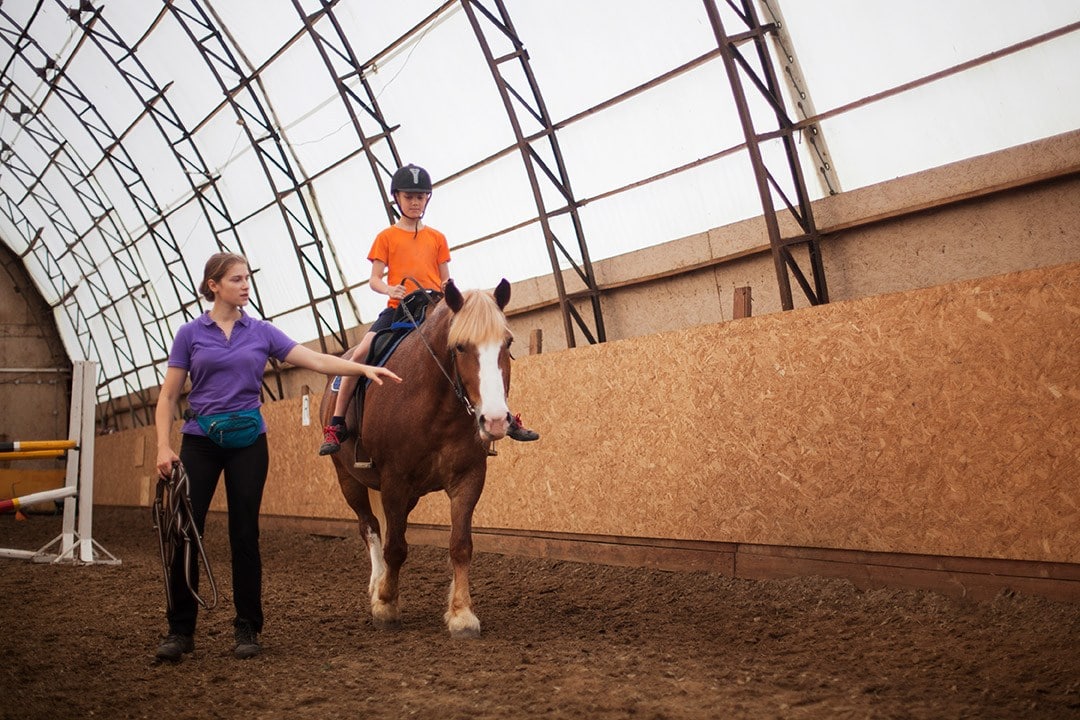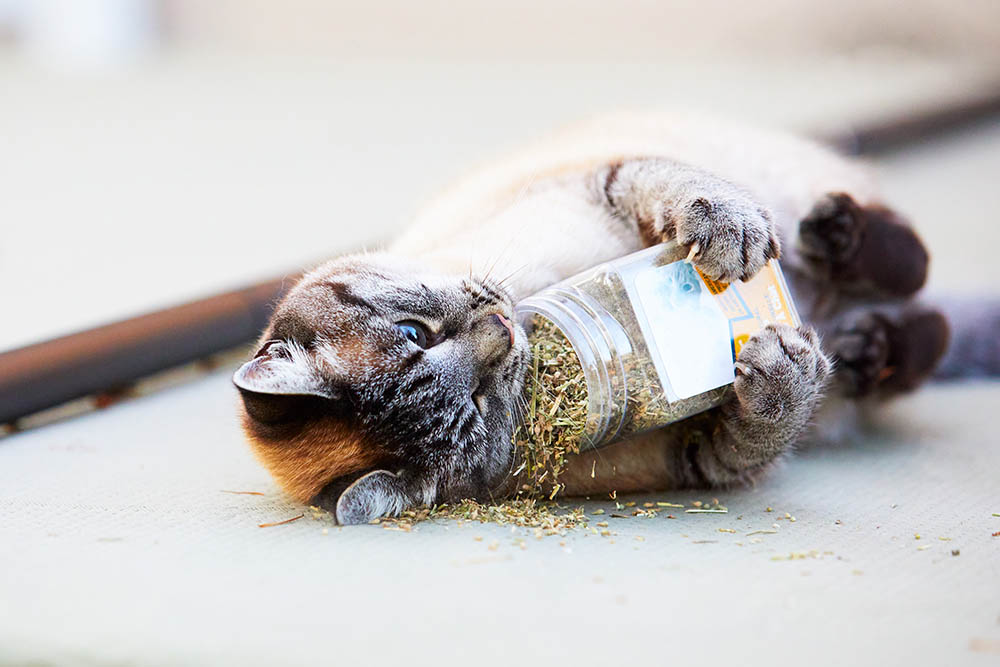VET APPROVED

The information is current and up-to-date in accordance with the latest veterinarian research.
Learn more »Cats darting out the door is a dangerous habit, especially if you live in a busy area with a lot of traffic or a rural area with predators like hawks, owls, and coyotes. Even if your cat manages to avoid getting hit by a car or attacked by an animal, it could find itself lost in the wild or in turf wars with feral cats that may carry diseases like feline Feline Immunodeficiency Virus (FIV).
So, how do you stop this behavior to keep your cat safe and restore your sanity? Here are five tips to break the habit.

The 5 Tips to Keep Your Cat From Running Out the Door
1. Spay or Neuter Your Cat
Spaying and neutering is a must for your cat, especially if you want to stop door darting. Tomcats are more likely to run out the door on the hunt for a female in heat, and females in heat will do just about anything to find mates. Spaying and neutering remove this sexual urge and makes the outdoors less appealing.
In addition, spaying and neutering are part of responsible pet ownership. According to the Lynchburg Humane Society, an unspayed female cat can have more than 100 kittens in her lifetime, and she and her associated offspring can produce an incredible 300-400 kittens in 7 years. Feral cats are already a growing problem, so do your part and spay or neuter your cat.

2. Organize a Greeting Area
Sometimes, a bad habit in a pet is triggered by behavior from an owner. If you typically greet your cat as you come in the door, it creates an opportunity for it to take off out the door. You can break this habit by closing the door before you greet your cat.
Instead, designate an area away from the door for greetings and goodbyes. You can make this spot more appealing by putting a scratching post or perch there, so your cat recognizes the area as its own space. Over time, you can train your cat to expect greetings in this area.
3. Plan a Distraction
Distractions are a great way to redirect undesirable behavior, such as running through your feet to the open door. Before you leave each day, give your cat a goodbye treat (away from the door). The cat will likely be so interested in the treat that it won’t even notice the door.
If you have a particularly persistent cat that always follows you, keep a stash of cat toys in a spot that you can reach, but the cat can’t access easily. Use this opportunity to toss a toy to the other side of the room when you leave, giving you the distraction necessary for your escape.

4. Provide More Entertainment
Sometimes, door darting is just a response to boredom. If your cat is looking to run out the door suddenly, it may be because it’s bored and looking for some entertainment. Get some puzzle toys, interactive feeders, and motorized cat toys with prey movements that will entice your cat to play on its own.
You can also invest in some complex trees and perches, which give your cat the choice of where to rest and allow it to engage its predatory instinct by surveying the room.
5. Spray Bottle as a Last Resort
If all else fails, you could try a spray-bottle deterrent. Positive reinforcement training is a much better way of training your cat, but spraying water may be an option for a one-off situation when your cat is dead-set on darting out the door. You can keep a spray bottle with water near the door, as an emergency measurement. If the door opens and your cat is waiting to run, squirt some water in their body (not the face) and shut the door. Spraying a cat with water should not be used for regular training – only as a last resort. This method is not the most humane, but certainly better than having your cat run directly into traffic.


Stay Consistent
While any or all of these tips may help with the door-darting habit, nothing will work if you and the rest of your household aren’t consistent. Every person must agree to whichever method they choose and apply it every time someone enters or leaves the house. If anyone forgets, even one time, it could set back your training efforts.
Hopefully, just a few days or weeks of consistent, appropriate training methods will be enough to convince your cat that life is better inside the house than gallivanting about the neighborhood.
See also:
- Why Do Cats Love Lasers? Reasons, Pros & Cons (Vet Answer)
- How Long Does It Take For A Cat To Have Kittens? Signs & FAQ
Featured Image Credit: StockSnap, Pixabay











